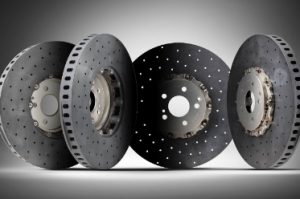Fate of Vauxhall plant down to government policy, warns car maker

The future of Cheshire’s Vauxhall car plant lies in the hands of the UK government’s automotive industry policy
That was the stark warning from the head of the plant’s newly-merged parent company, Carlos Tavares.
Speaking at an event to mark the $50bn merger of Vauxhall’s parent company, PSA Group, with the Italian-American company FiatChrysler, forming new entity Stellantis, he said they will no longer invest in pure diesel or petrol cars at the Ellesmere Port plant.
It follows the Government’s decree last year that it wants to ban the sale of new petrol and diesel cars from 2030 – with the exception of some hybrids – a much tighter timetable than other nations.
More than 1,000 people work at the Cheshire plant making the current version of the Vauxhall Astra, which is due to come to the end of its production life next year.
The car giant had indicated that a new generation model could be placed with Ellesmere Port, as well as in its Ruesselsheim plant in Germany, but that is now in doubt.
Mr Tavares said the UK site’s future will depend on where Stellantis makes the new generation of electric vehicles, and that a decision could be made in the new few weeks, dependent on the Government’s support of the UK car sector.
He said: “If governments create situations that destroy the business model, we stop investing, of course.
“If we are told that in 2030 internal combustion engines cannot be sold in the UK – which we respect as a decision from the country – then are not going to invest in internal combustion engines any more. Because that makes no sense.
“If you change brutally the rules, and if you restrict the rules for business, then there is, at one point in time a problem.
“The more we put stringent objectives on industry, the more you get close to that limit.”
However, there is a possibility that Ellesmere Port coulc build an electric or hybrid version of the new model, following the trade agreement reached between the UK and the EU on Brexit.
Mr Tavares said on paper it might make more sense to invest in Europe, because “the biggest market is on the continental Europe side”.
But he added there were other factors to consider: “It depends also on the UK government’s willingness to protect some kind of automotive industry in its own country, which is about their strategy. So we are now reviewing those scenarios.”








